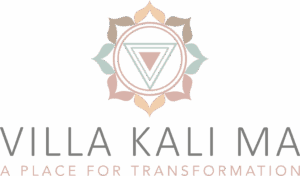 Using the term “self-medication” has become increasingly popular in the way that we talk about and understand the challenges in addiction that we face. We may have even heard the term used to describe our favored survival strategies and the way that we engage with our emotions. But what does it mean, and what can we learn from this way of understanding ourselves?
Using the term “self-medication” has become increasingly popular in the way that we talk about and understand the challenges in addiction that we face. We may have even heard the term used to describe our favored survival strategies and the way that we engage with our emotions. But what does it mean, and what can we learn from this way of understanding ourselves?
Today’s blog will discuss self-medication, what it means, and what you need to know.
The Cycle of Self-Medication Begins
You’re agitated. Something’s gotten under your skin, and the solution feels just out of reach. Maybe there’s no escaping from the grief, anger, or sense of loss piling up. Maybe what you’re facing is a time-sensitive challenge, where you must wait on something (or someone) else to achieve relief from the difficult emotions you’re experiencing. But there, just there in front of you, there’s something in reach.
For some, it’s food—ice cream, chips, a favorite meal. For others, perhaps they lean into social media, drink, or substances to take the edge of the unattainable relief they’re seeking. Using a tool to support your needs in the interim of a feeling or experience isn’t always an issue. When you use it to avoid or assuage that discomfort instead, it almost always is.
This is self-medication, and the cycle of dependency it creates can be deeply damaging to your well-being or derail your recovery.
What does it mean?
The term self-medication came about as a medical nod to patients who avoided their doctor’s advice, whether to avoid, enhance or supplement the treatment they’d been prescribed. In some forms, this led to antibiotic-resistant bacterias, and in others, it’s created chronic health conditions from temporary ailments.
In the mid-’80s, the evolution of the meaning of self-medication turned it into a powerful reframe for our behavior. It became acknowledged as a coping tool, which is universal and understood easily enough, since coping with the things we face is a struggle we all encounter. To journey through the darker moments, we seek relief. However, knowing where to find it can feel like entering a labyrinth of pain and confusion. Self-medication became the term for all the cheats we employ to tolerate our existence in that labyrinth, not moving or progressing, but simply halting the mounting stress of trying to find our way out.
Types of Self Medication
Food
Emotional eating often feels harmless at first—comfort food after a hard day can be a soothing choice. This isn’t self-medication. However, when eating those foods becomes a salve for confronting the struggle of your experiences, you’re entering more dangerous territory. Your ability to choose other coping skills declines as you require the medicine (food) on a more primal level. In this case, your comfort foods move from operating as a helpful coping tool towards a more unhelpful one. This becomes emotional eating, a self-medicating practice that makes it difficult to differentiate between hunger cues and emotionally charged ones.
Alcohol
So quickly, alcohol can become a numbing agent for the things in life you find difficult to process. Once a couple of drinks on a night out leaves you longing for that feeling of carelessness they offered, it’s all too easy to slip into the daily habit of unwinding with drinks and leaning into them each time the stress of life becomes a bit too much to bear.
Even more problematic alcoholic behaviors can begin in benign ways, like unraveling the stress of a rough week. But when the allure of self-medicating with drink becomes more influential than your self-preservation skills, it’s time to ask for support.
Marijuana
Often touted for its varied uses, marijuana is said to be a non-habit-forming natural alternative to many more dangerous drugs. While there are plenty of beneficial applications of marijuana, it is too frequently exchanged for emotional clarity in navigating difficult situations.
Self-medicating with marijuana begins when you require its presence as a sleep aid or a comfort to be able to confront the things you face each day. Although not physically addictive, marijuana can worsen depression and perpetuate a cycle of helplessness in those who self-medicate with it.
Stimulants
As the most widely varied category of self-medication, stimulants may be a nod toward utilizing tea or coffee to help you power through a tight deadline or a more sinister tailspin into hard stimulant drugs like cocaine or amphetamines.
On the milder end of the stimulant scale of self-numbing, you may feel more productive or capable. Just because coffee, tea, or soda are widely accepted and have health benefits of their own doesn’t mean they cannot be abused. If you find yourself unable to function without these things, you’ve likely slipped into an addiction mindset with your self-medication.
The off-label use of amphetamines, or outright abuse of cocaine, is a more clearly defined nod toward the risks of self-medication in that there are no benefits to their use beyond the euphoria they induce, which certainly doesn’t negate the cardiovascular risk they pose.
Opiates
Prescription opiates and opioids like Percocet or Dilaudid are prescribed for heavy pain relief after traumatic injury or invasive medical procedures. These highly addictive drugs have a myriad of valid clinical applications, but their use when not under the direct care of a physician can create a dangerous risk.
All produced from the poppy plant, these drugs bring with them a risk for addictive behaviors and worsened depression. Opiates are one of the most commonly abused categories of drugs.
If you find yourself navigating life, leaning on a treat or a tool as a crutch to justify avoidance, or your relationship with something that once felt good has become a spiral you’re not sure you can control, you may be self-medicating. Removing those crutches may feel terrifying, but you are capable of anything, even when it’s hard. At Villa Kali Ma, we are here to help guide you back to self-healing when you’re ready.

